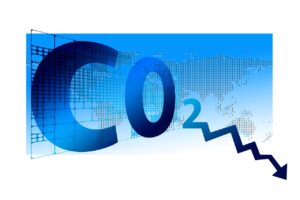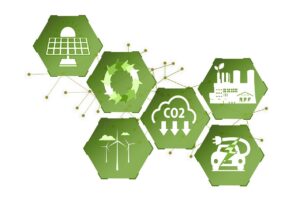Definition

Decarbonation refers to carbon dioxide emissions reduction. It covers all the techniques and methodologies to eliminate carbon dioxide (CO2) emissions in the atmosphere resulting from direct and indirect human activities.
Comments

The term appeared in the 1990s with the Kyoto Protocol as Decarbonation to refer to carbon dioxide emissions reduction. Through this protocol, the international community took first global initiatives to alert about climate change. Then, we have seen these last two years Decarbonation solutions and investments booming all over the world.
Regarding the wording, Decarbonation is preferred over Decarbonization. This last form may be misleading due to its reference to the carbonization describing another chemical phenomena.
Decarbonation intends to apply to all human direct or indirect CO2 emissions, as a person, as a company, as a country or any other organization.
The first measure for Decarbonation is to identify the main sources of CO2 emissions and measure them. Then the first resulting action is ideally to try to eliminate these sources or, at least, to reduce these emissions as much as possible. The Green House Gas (GHG) Protocol and series of international standards help to do so for products, services and organizations.
Renewables energies, such as solar and wind, the sequestration and electrification appeared among the first solutions for Decarbonation. But, other technologies are ramping up as well to address all types of emissions sources. They attempt to find an economical and social balance to the energy transition. They convert the CO2 from polluant to resource.
Per example, all the recycling solutions can provide immediate CO2 emissions savings. This recycling virtuous logic can even apply to the CO2 itself. Instead of releasing the CO2 in the atmosphere, the CO2 can be captured from the main emissions sources such as metal, cement, refining and petrochemical, power generation and manufacturing industries. In combining the captured CO2 with hydrogen (H2), the industry can produce various molecules. Here we think about eAmmonia, eMethanol, eFuels, Renewable Diesel, Renewable Natural Gas (RNG), Sustainable Aviation Fuel (SAF), and more.
If by definition, Decarbonation refers to carbon dioxide emissions reduction, its corresponding processes can also create value at the benefit of all.
To find all the details about Decarbonation projects in the world, go to www.projectsmartexplorer.com database.


